Bachelor of Social Work (Whyalla)
Degree Level Undergraduate
Year 2025
You're considered an International student if you are:
Degree Level Undergraduate
Year 2025
Program Code
MBSW
Prerequisites
None
Assumed Knowledge
None
Fees
AUD$ 32,800 per annum (per 1.0 EFTSL) for students enrolled in 2025
Admissions
Student Profile
International Admission by Country
See full entry requirements
CRICOS Code
000537M
The admission criteria have been grouped to assist you to easily find the information most relevant to your circumstances. However, you may fit into more than one and the university will consider applicants against each of the relevant criteria.
Certain conditions apply. For more information refer to Appendix 4 of the University's Selection and Entry policy.
Applicants are required to meet one of the following criteria with a competitive result, and demonstrate that they fulfil any prerequisite requirements and essential requirements for admission:
Recent secondary education
Meet any prerequisite requirements with a minimum grade of C- or equivalent
AND
Applicants who have not achieved the Selection Rank required for automatic selection may be selected for any remaining places based on the grades of their year 12 subjects.
OR
Higher education study
OR
Vocational Education and Training (VET)
OR
Work and life experience
| Norway GPA | 3 |
| Pakistan HSSC | 80 |
| Sri Lanka A Levels (best 3) | 7 |
| Sweden GPA | 13 |
| UK Board GCE A Levels/HK Board | 7 |
| Vietnam | 7.5 |
| Australia | 67 |
| IB (best 6) | 26 |
| USA SAT (1600) | 1110 |
| India (best 4) State Board | 75 |
| India (best 4) Central Board | 65 |
| HKDSE | 15 |
| Nepal NEB | 2.51 |
| Bangladesh HSC | 3.5 |
| Canada High School (OSSD) | 65 |
| Eynesbury FSP | 320 |
| German Abitur | 3.5 |
| Kenya KCSE (average) | B |
| Malaysia STPM (best 3) | 6 |
| Malaysia UEC | 31 |
1ComparED (QILT) Graduate Outcomes Survey 2021-23 – Full-time Employment Indicator (Domestic Postgraduate). SA public universities. 2Your study will include 20 days of on campus, face-to-face learning in selected courses across the duration of your degree which is in accordance with AASW (Australian Association of Social Workers) requirements to ensure practical skills competency. Your degree will also include supervised placements. 3ComparED (QILT) Course Experience Questionnaire 2021-22 – Overall Satisfaction Indicator (Domestic Undergraduate and Postgraduate). SA Public universities. 42018 Excellence in Research for Australia (ERA). 5Ranked #8, ComparED (QILT) Student Experience Survey 2021-22, Skills Development Indicator (Undergraduate). Public universities.

This degree provides you with knowledge of the political, behavioural and social sciences, and equips you with the skills needed to work in a range of fields in social work and human services. It has been developed around the following four major areas of study:
You will also gain valuable practical experience as part of this degree’s field education placement component. This is a valuable learning opportunity where you will build industry networks and further enhance practical skills. If you have completed a TAFE Diploma in Community Services, you are eligible for 18 units of credit. If you have completed a TAFE Advanced Diploma in Community Services, you are eligible for 36 units of credit.
Students studying this degree will be required to undertake checks through the Department of Human Services (DHS), a National Police Record Check, and complete a one-day Safe Environments for Children and Young People course prior to being accepted for work placements. Some placements may also require students to hold a current driver's licence and or additional requirements as requested by a specific placement provider.

This degree focuses on four major areas of study:
You will also gain valuable professional experience when you complete 1,000 hours of work placements during your third and fourth years.

Learn from industry experts and world-class researchers, gain practical experience in our on-campus Social Work and Human Services Studio, and build workplace networks during field education placements.
In our custom-built studios you will work alongside field practitioners and academic staff in simulated, real-life situations. Using recording equipment and cameras, you can review your work, receive feedback and learn from your experiences. Third and fourth year work placements will enable you to apply your knowledge and demonstrate your practical skills in a real-world scenario.
As part of your placement, you may have the opportunity to take part in UniSA’s South Australian Parliamentary Internship program. Students undertaking their second field placement in their final year of study in an undergraduate Social Science or Social Work degree, including double degrees, are eligible to apply for this opportunity.
You can also choose to study your degree externally to suit your lifestyle, work and family commitments1.
1Your study will include 20 days of on campus, face-to-face learning in selected courses across the duration of your degree which is in accordance with AASW (Australian Association of Social Workers) requirements to ensure practical skills competency. Your degree will also include supervised placements.
Are you ready to enhance the wellbeing of others through advocacy, social change, relationship building and empowerment? Explore a degree in social work and discover the meaningful role social workers serve in building communities.
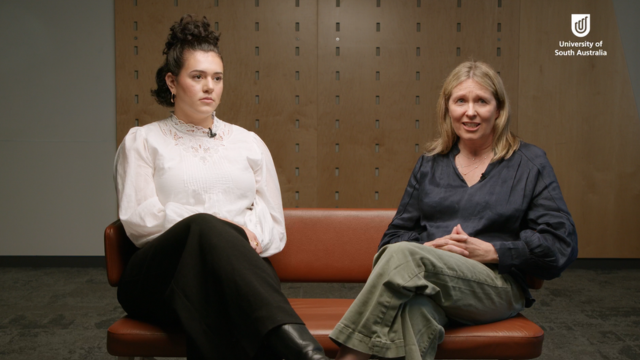
As a social worker, you may provide support, counselling and service referrals, conduct research, and practice advocacy to improve individual wellbeing and promote a fair, inclusive society. If you have a passion for human rights and a strong commitment to social justice, there are a number of employment opportunities in an array of sectors, including:
Graduates are eligible for membership of the Australian Association of Social Workers.
How to apply for international students will give you helpful information about the application process at the University of South Australia. When you are ready, apply through our International Application System. If you would like to talk to someone near you about studying at the University of South Australia, we have agents all over the world who can assist you. Find an Education Agent in your country.
Australian
There are other pathways you can follow to study this degree, including:
International
There are other pathways you can follow to study this degree, including:
Every year, over 2,500 UniSA students are supported in their studies through scholarships and grants worth millions of dollars. Check out the scholarships below. One of them may be perfect for you. Visit our scholarships page for more.
Recipients can get a 50% reduction on tuition fees for up to four years of full-time study for selected degrees.
Recipients can get a 15% reduction on tuition fees for the duration of their chosen degree.
As a student at the University of South Australia you will have unique access to overseas study tours and exchanges, networking events, internships, guest speakers and more.
Our campuses are equipped with state-of-the-art facilities including modern lecture theatres, libraries, workshops and student lounges. These are all supported by the latest technologies and a 24/7 online learning platform.
South Australia has a variety of accommodation options to suit different requirements and budgets. Options include dedicated student accommodation or private rentals. See our long-term accommodation web pages for plenty of options.
As a social work student you will have access to our state-of-the art Social Work and Human Services Studio, which are equipped with recording equipment and cameras so that you can practice your skills with the help of field practitioners and academic staff.

This program will offer you a gateway to a range of exciting and rewarding careers. By studying this program, you will be introduced to a diverse array of knowledge and skills. I place a strong emphasis on explicating the links between research, theory, policy and practice. In addition to undertaking policy development and program planning as an active research focus, I also have professional experience in the field.

There are a number of ways to apply to study UniSA's undergraduate and postgraduate coursework degrees.
You can access our online International Application System through our How to Apply page. The International Application System is an easy and secure online application and acceptance process. You will have visibility of your application through the secure online portal with the ability to download offer documents, submit your acceptance and make a payment.
Alternatively you can submit an application through one of the University's registered Education Agents.
If you are completing an Australian year 12 qualification in Australia or overseas, or the International Baccalaureate (IB) Diploma Programme in Australia, you must apply through SATAC http://www.satac.edu.au/.
If you are applying for the UniSA Study Abroad or Study Abroad Plus program, you can submit your application online here.
Postgraduate study by research
For information on applying to do postgraduate study by research, including Masters by Research, PhDs or Doctorates, please visit http://unisa.edu.au/resdegrees.
There is no closing date for submitting your application however the admissions process takes between one and three weeks from the date that we receive your application and all required supporting documentation.
If you are completing an Australian year 12 qualification in Australia or overseas, or the International Baccalaureate (IB) Diploma Programme in Australia, you must apply through SATAC. Key dates for applications can be found here.
You may be eligible to receive credit or advanced standing for your chosen UniSA degree based on your previous studies, if they are in a related area at an equivalent or higher level. Receiving credit will reduce the number of courses you undertake within the degree, and may also reduce the overall duration of your degree.
The amount of credit you may be eligible to receive is assessed on a case-by-case basis by the Admissions team.
The best way to determine your eligibility to receive credit or advanced standing is to apply using our International Application System which can be found on our How to Apply page. You will need to supply detailed syllabus documents with your application.
UniSA welcomes the opportunity to speak with you regarding your study options. Our staff are able to talk to you about degree information, career outcomes and pathways, entry requirements, applications, and student life, so that you are able to make the best study decision for your future.
Click here to book a 1:1 appointment with one of our enquiries team.
We also have many events throughout the year in Australia and overseas where you can speak with UniSA representatives about your area of interest. View our calendar of events in your home country by selecting the 'International' filter.
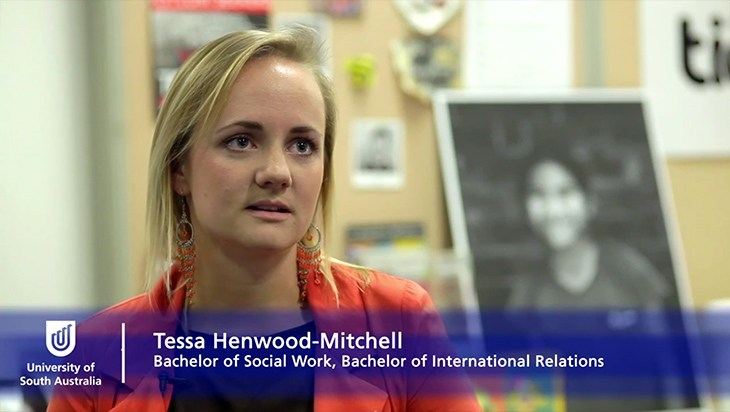
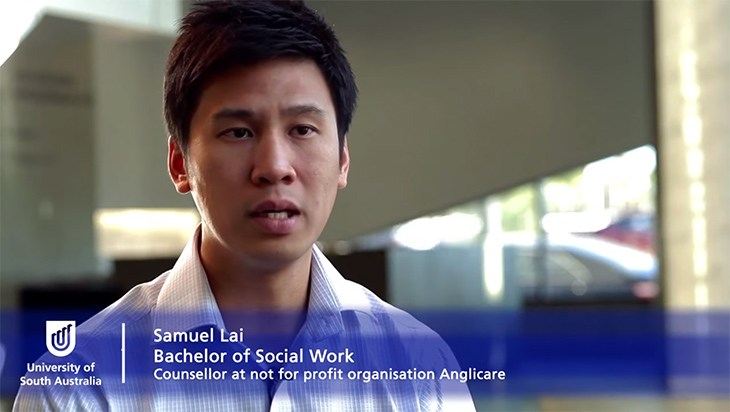
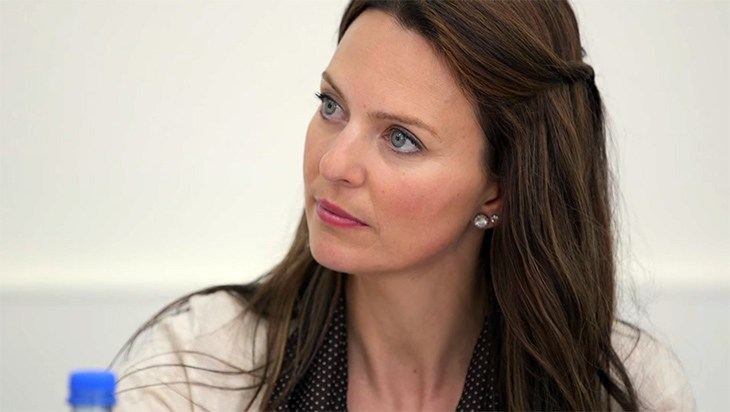
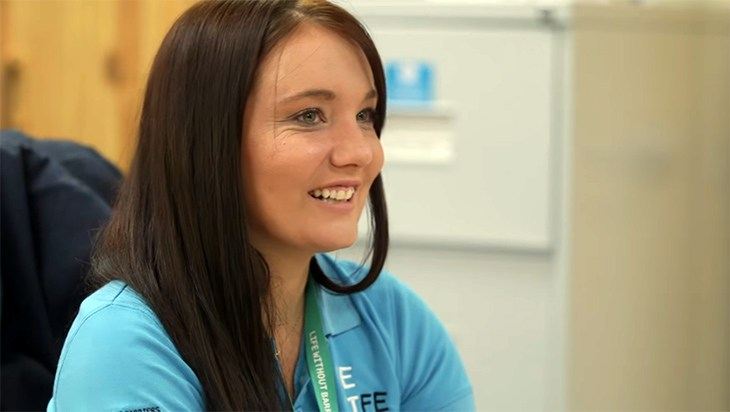

Bachelor of Social Work student Jarrod shares his experience of his rural placement at the Environmental Centre in Port Pirie, supported by UniSA’s Department of Rural Health.